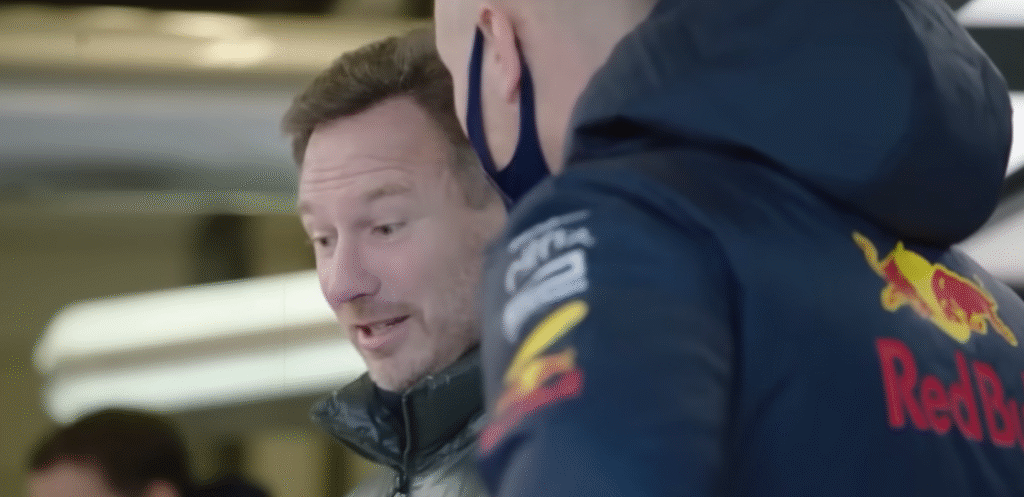In addition to decades of dedication to motorsport, Christian Horner’s estimated $50 million fortune is the result of strategic leadership, astute negotiation, and an exceptionally successful brand-building strategy. Even though his sudden exit from Red Bull Racing in July 2025 garnered media attention, his financial story endures much longer than a news cycle. Horner helped transform an underdog supported by energy drinks into a multi-title winning team over the course of 20 seasons, leaving a legacy that goes far beyond trophies and champagne.
Horner became the iconic team principal of his time by steering Red Bull Racing from its founding in 2005 to its peak in 2025. His approach was crucial to the development of contemporary Formula One as a media product because it was extremely effective, frequently provocative, and consistently strategic. Notably, Red Bull’s eight Drivers’ titles and six Constructors’ Championships during his leadership tenure were the product of carefully planned systems rather than chance. Horner’s choices, such as bringing on Adrian Newey and developing young players like Max Verstappen, significantly enhanced the team’s long-term prospects.
Leaders like Horner, who understood how to combine athletic prowess with strategic marketing, have contributed to the substantial increase in Formula One’s commercial value over the last ten years. Horner’s income multiplied during this period of expansion. According to reports, his base pay was $10 million a year, but that is only the base pay. Speaking engagements, licensing fees, and performance-based bonuses all made significant contributions. In addition, he and his wife, Geri Halliwell, co-own several estates, all of which are exquisitely designed homes that serve as both real estate investments and private retreats.
Christian Horner – Profile and Financial Overview
| Attribute | Details |
|---|---|
| Full Name | Christian Edward Johnston Horner |
| Date of Birth | November 16, 1973 |
| Birthplace | Royal Leamington Spa, England |
| Nationality | British |
| Occupation | Motorsport Executive, Former Racing Driver |
| Most Known For | Former Team Principal of Red Bull Racing (2005–2025) |
| Net Worth (2025) | $50 million (est.) |
| Annual Salary (as Team Principal) | $10 million (approx., before firing) |
| Career Highlights | 6 Constructors’ & 8 Drivers’ Championships (Red Bull) |
| Spouse | Geri Halliwell (former Spice Girl) |
| Children | Two (one with Geri Halliwell, one from previous relationship) |
| Estate Locations | Oxfordshire and Hertfordshire |
| Honors | Officer of the Order of the British Empire (OBE), 2013 |
| Reference Source | CelebrityNetWorth.com |

Horner’s life may seem predetermined because she is married to pop royalty and resides on enormous country estates. However, early grit is the foundation of his fortune. He made a name for himself on the track before transitioning into management. He was born into a family with connections to the automotive industry. He started Arden International in 1999 following a brief but enlightening career as a driver. Horner advanced swiftly through the ranks of motorsport management thanks to his exceptional ability to identify talent and create operational frameworks.
By 2005, Red Bull recognized that he had the courage and self-control to be the team’s new leader. He was the youngest team principal on the grid at the age of just 31. Horner made Red Bull Racing a worldwide brand with his steady performance and especially creative leadership. He and Sebastian Vettel dominated the rankings from 2010 to 2013. He then repeated that success with Max Verstappen starting in 2021, enhancing his standing as one of Formula One’s most tenacious and forward-thinking leaders.
Not all of his conflicts took place on the track. His rivalry with Toto Wolff of Mercedes turned into one of the main plot points of the hybrid era of Formula One. With a net worth close to $100 million, Wolff may be wealthier than Horner, but Horner is equally strong thanks to a variety of revenue sources and a remarkably resilient brand. Being as much of a media personality as a team leader, he took advantage of every press conference and televised interview to increase Red Bull’s—and consequently, his own—public visibility.
Horner’s impact has grown significantly outside of race weekends in recent years. He developed into a figure whose opinions were sought after throughout motorsport, a voice for governance, and a lobbyist for team interests. Then 2024 arrived, a year that clouded his legacy. A highly publicized internal investigation resulted from allegations of inappropriate behavior. Despite being cleared, the experience left institutional and emotional scars. Days after the British Grand Prix, he was finally fired, indicating that long-simmering tensions had finally reached a boiling point.
Horner departed with financial stability in spite of the controversy. Top executives of his caliber usually receive severance packages that include image protection clauses, deferred bonus payments, and sizeable lump sums. These advantages probably increased his already substantial portfolio by several million dollars. He and Geri Halliwell, who are frequently pictured at parties and elegant dinners, continue to embody a surprisingly accessible form of British glitz that appeals to a wide range of consumers.
Christian might have more freedom to work on projects that suit his changing interests now that he’s gone. Potential media endeavors, consulting positions, or even collaboration with tech-based startups interested in motorsport partnerships have already been conjectured by industry analysts. Horner could quickly convert his experience into incredibly effective business models by working with such companies.
Horner established himself as more than just a team manager by forming strategic alliances both inside and outside of racing. His ability to forge strong internal cultures, collaborate with leading engineers, and predict market trends demonstrates leadership that is especially advantageous in other cutthroat industries, such as sustainability, sports technology, and entertainment.
Now, the question for both critics and fans is: What comes next? Horner’s voice is significant because he helped define the character of a contemporary Formula One team. In the quickly changing world of motorsport economics, his observations are still very valuable. Furthermore, he is a valuable asset in almost any executive setting due to his demonstrated ability to navigate through turbulent times while preserving his brand equity.
